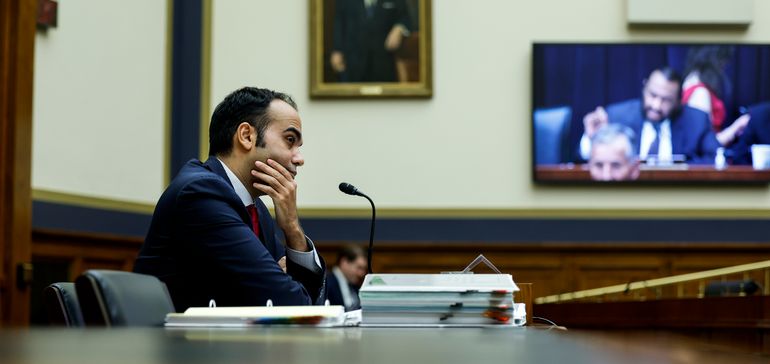|
Getting your Trinity Audio player ready...
|
Republicans on the House Financial Services Committee said Consumer Financial Protection Bureau (CFPB) Director Rohit Chopra can expect stricter oversight of the CFPB under next Congress’s GOP-lead House, as Republicans continue their campaign to rein in an agency they claim lacks transparency and accountability.
“You can look forward to a few more of these invitations next year,” Rep. Patrick McHenry, R-NC, the ranking member on the House Financial Services Committee, told Chopra at the beginning of Wednesday’s hearing. “Next month there will be a new majority in the House of Representatives. I think you’ll wish you tried harder to play by the rules.”
The CFPB, which was created through the passage of the Dodd-Frank Wall Street Reform and Consumer Protection Act in the wake of the 2007-08 financial crisis, has become a prime target for GOP lawmakers who claim the agency has become too powerful.
Over the last several months, Republicans in both chambers have accused Chopra of wielding “unchecked power” and pursuing a “radical and highly-politicized agenda unbounded by statutory limits.” He began leading the CFPB in October 2021.
During Wednesday’s hearing, McHenry accused Chopra of shrugging off Republicans’ concerns.
Republicans’ sent more than 10 letters with specific questions to Chopra over the past year, to which Chopra replied with single page responses, McHenry said.
“It looked glib and not as thoughtful as a major regulatory agency should take congressional oversight,” McHenry said. “My encouragement would be for you to actually take those letters more seriously with the new majority next Congress.”
McHenry also raised concerns about what he referred to as the agency’s practice of “regulation by press release,” noting the bureau issued 49 press releases in the first six months of Chopra’s tenure.
McHenry questioned Chopra on the agency’s policies regarding how it distributes certain notices. “How do you make the distinction for rulemaking? What gets a blog post? What gets a press release?” he asked.
The agency’s proliferation of guidance, blog posts and other circulars is a response to industry feedback and requests for more transparency, Chopra said.
“Enforcement is just one vehicle, but to promote compliance and clarity, we must be able to provide more transparency on how we interpret rules,” Chopra said. “None of the guidance documents commit institutions to new obligations.”
McHenry called the agency’s approach to issuing guidance “novel” and distinct from other government agencies. Chopra disagreed.
“The Treasury does this,” he said. “We see this also from the Education Department and the Labor Department, the Homeland Security Department – there are many ways in which they communicate.”
CFPB eyes ‘hidden’ remittance fees
With respect to one consumer issue raised during the hearing, Chopra said the CFPB is looking into how it can improve transparency among exchange rates for remittance providers in an effort to help consumers better understand the fees associated with remittances.
“When someone is sending a remittance, the cost to them is a mix of any immediate fee plus any exchange rate delta, and in many cases, the consumer cannot really know how much money is going to end up on the other side,” he said.
Chopra’s comments follow an October letter sent by Sen. Elizabeth Warren, D-MA, and four other Senate Democrats urging the CFPB to take action to eliminate hidden fees associated with international remittance payments.
“When consumers are not aware of the true cost of a remittance payment, they are left with little ability to select the most cost-effective option,” the senators wrote. “This reduces competition in the payment provider market, incentivizing remittance payment providers to hide fees and providing them with an opportunity to artificially inflate prices.”



